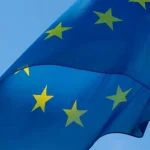
As Poslovni Dnevnik writes on the 23rd of October, 2020, the ongoing coronavirus crisis could accelerate the integration of capital markets across the European Union in order to encourage the recovery of small and medium-sized enterprises as soon as possible through alternative sources of financing. What does this mean for Croatia and Eurozone entry, exactly?
Capital market integration should also make it easier for banks and financial investors to invest in the capital of companies that strive for sustainable operations and in line with the European Union’s green agenda. New ideas are constantly being sought during these truly unprecedented times in which the coronavirus pandemic brought the world the greatest global economic crisis since World War II. The significant levels of uncertainty and the impossibility of clearly estimating how long it will all last are accelerating various innovative solutions.
Shortly after the crisis caused by the COVID-19 pandemic began, it became clear that its impact on the Croatian financial services sector could be strong and far-reaching. With Croatia’s Eurozone entry plans, it was unclear at first what effect the economic woes would have.
However, despite the severity of the unpredictable situation, the Croatian Financial Services Supervisory Agency (Hanfa) believes that we’re at a turning point that – if we prepare well – might accelerate our stronger recovery in the capital market.
There are a number of challenges facing the financial sector in the future, from a number of geopolitical tensions, such as trade wars, growing economic and political instability, climate change and rising premium risks to the sustainability of public debt. It’s also worth emphasising the problem of corporate liquidity due to the tightening of financing conditions – a pressing solvency problem that will only manifest itself after the expiration of assistance from national governments – which will lead to a possible increase in stress levels across financial markets.
In light of Croatia’s economic recovery, especially after the coronavirus crisis passes, a very ambitious European Union plan to establish a Capital Markets Union is of high importance for Croatia, according to Ante Zigman, President of the Hanfa Board, who spoke on the matter during a recent presentation.
As he pointed out, with Croatian Eurozone entry, the continuation of the integration of the capital market into the EU is of significance for the Croatian economy. After the first one back in 2015, in September this year, the European Commission issued a new action plan which by the end of 2022 is divided into three basic goals through as many as 16 different measures. The first goal is to support green, digital, sustainable economic recovery by providing more affordable financing to European companies.
Digitalisation has come into focus because digital changes in the way we pay for things and provide financial services are changing even faster with this crisis forcing our hands. According to the market capitalisation of the 500 largest financial service providers in the world, the rapid growth of the share of the financial payments industry and fintech companies is obvious, and banks are finally losing their dominance in the financial world.
Croatia already has a basis for the growth of new digital financial companies due to changes in methods of payment, where transactions via the Internet and mobile banking are growing rapidly. The growth of young digital fintech competition has some major advantages, such as stronger market competition and lower service prices, reduced market concentration, greater transparency and better access to financial services in general.
The second is to make the European Union an even safer place to save and make long-term investments, and the third is to integrate national capital markets into what would truly be one single market.
In the long run, this should focus more on financing from the banking to the non-banking sector, enable the easier and cheaper financing of sustainable companies that currently don’t have access to recover their equity through banks and traditional lending, and the easier transition of the economy to sustainable and environmentally friendly business within a constructive Union-wide plan.
The proposed plan doesn’t diminish the importance of national stock markets, but connects them so that through future uniformed and harmonised regulations, investors can find good opportunities for cross-border investment, that large and small investors can more easily invest and that tax treatment of such investments is equalised throughout the EU.
In addition to strengthening new investments, the plan also includes financial literacy of the aging European population as well as the growth of their investments for pensions.
The plan defines the intention to alleviate the tax burden in cross-border investments, standardises bankruptcy proceedings between EU member states in order to protect all types of investments, unambiguously defines the concept of shareholders across the EU to harmonise rules governing the relationship between investors, intermediaries and issuers, and foresees all barriers to the use of new digital technologies in all capital markets being removed in the long run.
For the latest travel info, bookmark our main travel info article, which is updated daily.
Read the Croatian Travel Update in your language – now available in 24 languages
Join the Total Croatia Travel INFO Viber community.










